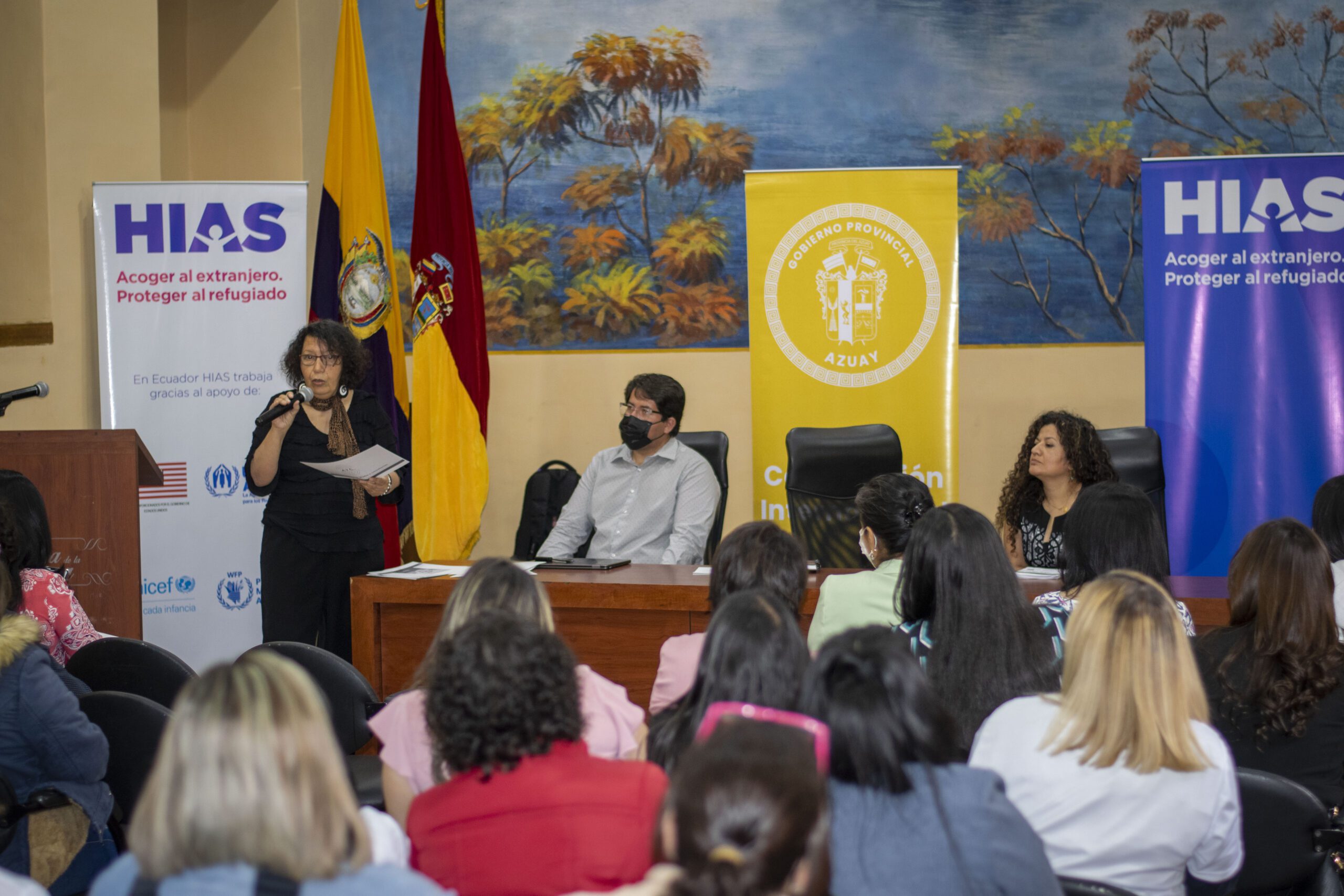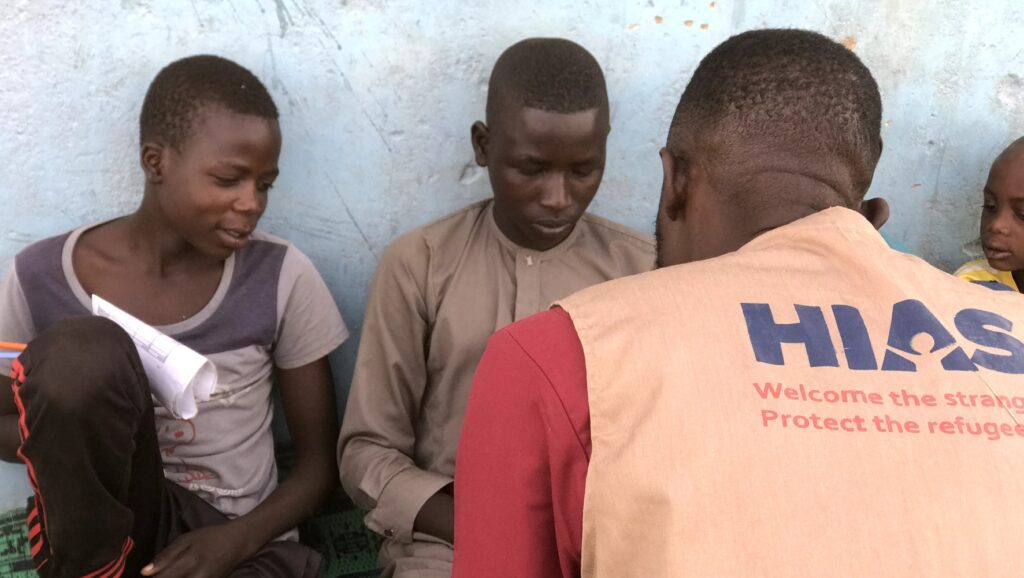
Refugees around the world deserve decent and dignified employment opportunities.
However, for many displaced people who have fled their home countries to safety abroad, accessing them can be extremely challenging.
Many refugees and asylum seekers continue to face complex challenges in their host countries. In comparison to host country nationals, these include higher unemployment rates, lower wages, labor exploitation, and a lack of support.
Through HIAS’ economic inclusion program, we work with local, national, and transnational companies to understand more about the fundamental role they can play in facilitating access to the job market for refugees. We coordinate closely with the private sector as part of an overall strategy to achieve systemic change in which displaced people find welcome, safety, and opportunity wherever they may end up.
How exactly does this happen? We have five main areas of work with the private sector around the world.
Becoming Aware of Local Legal Requirements
HIAS works with private companies around the world such as Marbelize, Tesalia, and the Costa Rican Chamber of Commerce to provide them with training sessions on refugee rights and the importance of creating an environment inclusive of displaced people in their businesses. We also provide training regarding local legal requirements to hire refugees and asylum seekers, and we support them throughout the hiring process to organize documents and submit them to the authorities.
Assessing the Labor Market for Identifying Skills in Demand
To inform our skills training and entrepreneurship programs, we carry out a labor market assessment which helps us understand which skills are most in demand in different local and national markets. Many private companies, such as Paccari and República del Cacao, are involved in this process, providing important insights regarding the skills they value the most and the shortages they are currently facing. This allows us to work with refugees to align their interests with a profession currently in high demand.
Preparing Refugees with Soft Skills
Our human talent consultancy services provide displaced people with training on soft skills that are often required for employment in the private sector. We also use an AI tool, SkillLab, to help refugees map their skills and connect with job opportunities. Consulting sessions held with private sector partners help to inform the content of the training sessions. HIAS then supports refugees to create resumés, prepare for interviews, and develop communication skills that can help them secure job opportunities. Once we’ve completed the training programs, we even refer refugee candidates to our corporate partners to be considered for employment opportunities. Some companies that have hired refugees after they received human talent consultancy services are Uber, KFC, Teleperformance, and Difare.
Conducting Skills Training Programs with Private Partners
We work with different partners in the private sector to provide online skills training programs for refugees who are looking for employment opportunities, through platforms such as Coursera and Rosetta Stone. We also work with different companies such as Pronaca and Hotel Oro Verde that provide in-person training and mentorship opportunities to displaced people, so that they can learn directly from the employers and companies that are shaping current trends in the job market.
Supporting Refugee-Run Businesses
Our economic inclusion experts also work with corporate partners to encourage them to support refugee-run small businesses. HIAS connects refugee entrepreneurs with companies in the private sector to facilitate business relationships. We work with private companies and refugee entrepreneurs to integrate refugee-made products and services into the value chains of different companies around the world. Western Union and Pfizer are among the many companies who have organized buisness fairs or have purchased products from refugee-run businesses around the world.


